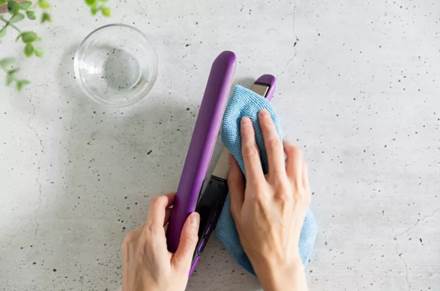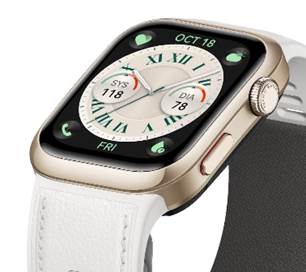Smartphones
and laptops dominate our digital lives, but there's a growing space between
them that tablets fill perfectly. The decision to buy a tablet isn't always
straightforward. You might wonder if it's truly necessary or just another
gadget that will collect dust. The truth is, tablets serve specific needs
exceptionally well, and recognizing those needs in your own life can help you
make the right choice. In this article, we'll explore clear signs you need a
tablet, the best use cases, and how to choose the perfect model for your
lifestyle.

Clear Signs You Need a Tablet
Your Phone Screen Limits Productivity or Entertainment
If
you constantly find yourself squinting at your phone or zooming in and out of
documents, it's a strong indicator you need a tablet. The larger screen makes
reading e-books, editing documents, and watching videos significantly more
enjoyable. Imagine trying to review a spreadsheet on your phone versus a
10-inch tablet - the difference in productivity is enormous. Another advantage
is the improved typing experience. While phone keyboards work for quick
messages, writing anything longer than a paragraph becomes frustrating. Tablet
keyboards, whether on-screen or physical, provide enough space for comfortable
typing.
Carrying a Laptop Becomes Inconvenient
Laptops
offer full computing power, but their weight and bulk make them impractical for
many mobile situations. If you find yourself leaving your laptop behind because
it's too heavy, or if you frequently need just basic computing functions on the
go, a tablet could be the perfect solution. They're lightweight enough to carry
everywhere, yet powerful enough to handle most everyday tasks. Many
professionals use tablets for quick email checks, presentation reviews, and
note-taking while reserving their laptops for more intensive work sessions.
Your Current Device Can't Handle Multitasking
Modern
tablets have evolved far beyond simple media consumption devices. If your phone
or older tablet struggles with basic multitasking - like having a video call
while referencing notes or switching between research tabs - an upgrade could
dramatically improve your workflow. Newer tablets can run multiple apps side by
side smoothly, with some even supporting desktop-like window management. For
students, this means being able to have lecture slides open while taking notes
and researching terms simultaneously. Professionals can benefit from having a
video call on one side of the screen while referencing documents on the other.
You Want a Dedicated Media Consumption Device
If
your phone battery drains quickly from video streaming or your laptop gets
uncomfortably warm during movie nights, a tablet offers the ideal middle
ground. The larger screen provides a much better viewing experience than phones
without the bulk and heat issues of laptops. Tablets are perfect for bedtime
reading, kitchen recipe following, or keeping kids entertained during travel. The
aspect ratio of most tablets is also better suited for video content than
smartphones, with less letterboxing on movies and TV shows.
Best Scenarios for Tablet Use
For Students: E-books, Note-Taking, and Portable Study
Tablets
have revolutionized student life by consolidating textbooks, notebooks, and
research materials into one lightweight device. Digital textbooks are often
cheaper than physical copies and eliminate the need to carry heavy backpacks.
The ability to highlight and annotate directly on digital documents makes
studying more interactive and efficient. Note-taking reaches new levels with
stylus support. Students can write directly on lecture slides, convert
handwritten notes to text, and organize everything in searchable digital
notebooks.

For Professionals: Light Work, Emails, and
Presentations
Many
office workers don't need full laptop power for their daily tasks. Tablets
handle email management, document review, and video conferencing with ease
while being significantly more portable. They're perfect for business trips
where you need to stay productive without the weight of a full laptop. Presentations
become more engaging with tablets. Instead of being tethered to a podium, you
can move around the room while controlling slides. Some tablets even allow
direct annotation on presentation slides during meetings.
For Creatives: Digital Art, Design, and Content
Creation
Modern
tablets have become powerful creative tools with pressure-sensitive styluses
that rival traditional art supplies. Digital artists appreciate the ability to
work anywhere without carrying numerous physical tools. The undo function alone
saves countless hours compared to traditional media. Content creators benefit
from tablets at every stage - brainstorming with digital notes, sketching
concepts, editing photos or videos, and even publishing directly from the
device. The touch interface makes many creative tasks more intuitive than using
a mouse and keyboard.
For Casual Users: Streaming, Gaming, and Browsing
Even
if you don't need a tablet for work or school, it can significantly enhance
your leisure time. The larger screen makes browsing social media, reading news,
or playing games more enjoyable than on a phone. Tablets are perfect companions
for lazy Sundays in bed or long flights where you want varied entertainment
options. Many people find tablets reduce their phone usage by handling media
consumption, leaving their phone battery free for calls and messages. Parents
appreciate tablets for keeping children entertained with educational apps and
videos while maintaining control over usage time and content.
How to Choose the Right Tablet
Selecting
the perfect tablet depends on understanding your primary use cases. Consider
screen size first - larger screens (10-13 inches) are better for productivity
and media, while smaller ones (8-9 inches) are more portable. Processing power
matters if you plan to multitask heavily or use demanding apps, while casual
users can opt for more modest specs. Storage capacity is another key
consideration. If you work with large files or want to store media offline,
look for models with expandable storage via microSD cards or opt for higher
built-in storage. Battery life varies significantly between models, with some
lasting 10+ hours of active use while others struggle to reach 6 hours.
Conclusion
If
you've identified with several of the signs we discussed - struggling with
small screens, needing more portability than a laptop offers, or wanting better
multitasking capabilities - then yes, a tablet would likely be a worthwhile
investment. The Huawei MatePad 11.5 stands out as an excellent choice with its
powerful features that balance productivity and entertainment needs perfectly.
If these scenarios match your daily life, you might want to buy huawei matepad 11.5 2025 to experience these benefits firsthand. Ultimately, the best way
to know if a tablet is right for you is to identify your specific pain points
with current devices and match them to what tablets do best.
